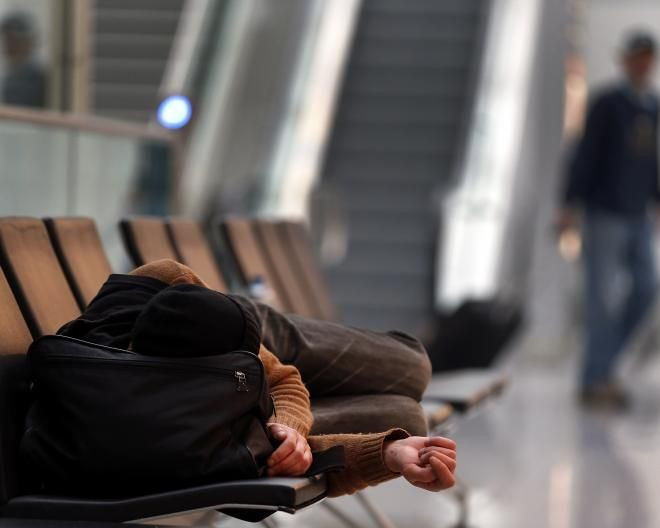Irregular Sleeping Patterns Linked To Bad Eating Habits Among Teenagers, Study Finds

Teenagers with irregular sleeping patterns are more likely to binge eat and consume more junk food, a new study finds. The study was conducted by researchers from Penn State University. For the study, researchers analysed data on 342 teenagers and analysed their sleeping habits.
On average, they slept about seven hours nightly. Researchers found that when sleep patterns varied for even a hour, it resulted in change in eating habits too. Teenagers with irregular sleeping patterns consumed 201 more calories per day. They also consumed about 6 grammes more total fat and 32 grammes more carbohydrates daily. These teenagers also had 60 percent higher chance of nighttime snacking on school nights, and 100 percent higher chance of nighttime munching on weekends. The researchers also found that teenagers with irregular sleep patterns also overeat carbohydrates after dinner and consume less calories during breakfast and more before going to slee, according to Medical Daily.
“According to the data from our study, it’s not how long you sleep that matters. It’s about day-to-day variations in how long you sleep,” study author Fan He, the lead author of the study and an epidemiologist at Penn State University College of Medicine, said in a press statement. “It’s may be more important to have a regular sleep pattern than to sleep longer one day and shorter on another. These findings could help us better understand how obesity develops among young people.”
Previous studies have shown that sleep deprivation leads to an increase in appetite, especially for sweet and salty foods. A recent study also showed that sleep-deprived teenagers were more likely to make poor dietary choices. Other consequences of sleep deprivation include low stress threshold, impaired memory, increased risk of cardiac morbidity and high blood pressure and concentration problems.
According to the American Academy of Pediatrics, teenagers are recommended to receive at least nine to ten hours of sleep per night, while adults should get a minimum of 7 hours of sleep per night. The study was funded by the National Institutes of Health and the Penn State Clinical Translational Science Institute.
To contact writer, email sammygoodwin27@gmail.com




















